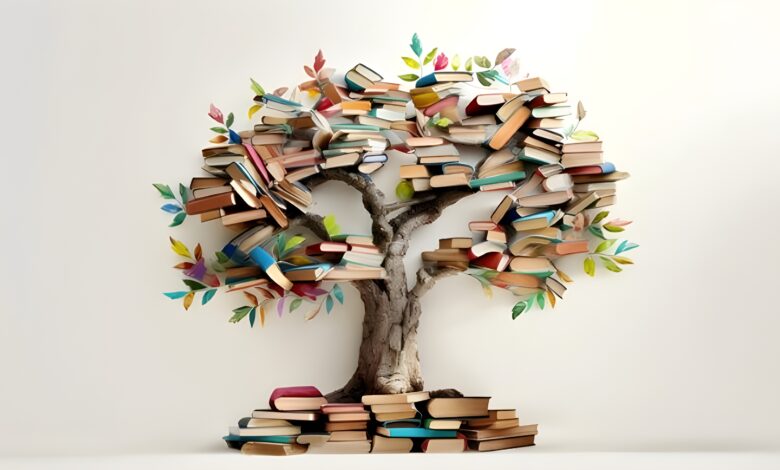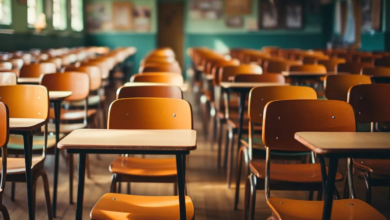Education System in Pakistan

Welcome to an exploration of Pakistan’s educational journey, a voyage marked by both accomplishments and challenges. In this article, we’ll embark on a comprehensive tour of Pakistan’s education system, analyzing its setbacks and envisioning the road to academic excellence. Whether you’re a student, a parent, or an education enthusiast, join us as we navigate the educational landscape of Pakistan.
Pakistan’s Three-Tiered Education System
Are you ready for an exciting journey through Pakistan’s education system? Buckle up as we explore this three-tiered adventure that shapes the academic path for students across the country. Whether you’re a student eager to learn or a parent guiding your child’s education, let’s embark on this educational quest together.
Tier One: Primary Education – The First Step
Our journey begins at the primary level, where you take your first steps into the world of learning. Think of it as your starting point, the foundation upon which your educational adventure is built. Primary education is not only crucial but also free and mandatory for all children in Pakistan, at least in theory. However, there’s more to the story.
In rural areas, reaching school can be an expedition in itself, with children often living far from educational institutions. Despite these challenges, primary education serves as the gateway to a world of possibilities, where knowledge opens doors to endless opportunities.
Tier Two: Secondary Education – Navigating the Maze
As we move to the second tier, secondary education reveals itself as a complex and intriguing maze. This phase marks a significant twist in our educational journey. In secondary education, students encounter exams like the Secondary School Certificate (SSC) and Higher Secondary School Certificate (HSSC) – milestones to overcome to continue your adventure.
Tier 3: Higher Education – Shaping Futures
Tier 3 represents the higher education level. It includes universities and colleges, both public and private, offering undergraduate and postgraduate programs. These institutions play a crucial role in shaping the future of Pakistan’s youth, providing them with the knowledge and skills necessary to excel in their chosen careers. Students at this tier can specialize in various fields, from engineering and medical sciences to humanities, business, and social sciences, allowing them to explore their passions and contribute to the nation’s socio-economic growth and development.
But, like any good adventure, this maze isn’t without challenges. Picture it: navigating through the labyrinthine corridors of educational trials, with hurdles like poverty, gender disparities, and infrastructure issues complicating the path. Secondary education is a test of your determination and resilience.
Key Challenges in Pakistan’s Education System
Several factors impede the smooth flow of education in Pakistan:
Quality Education: The Common Thread
One overarching concern permeates Pakistan’s education system at every level – the quality of education. Access is important, but quality is equally critical. Many schools in Pakistan, particularly those in rural and underserved areas, lack basic facilities and well-trained teachers. This poses challenges in preparing students for the demands of the modern world.
The Curriculum Challenge: Adapting to Modern Needs
At the heart of the quality concern lies the need for a modernized curriculum capable of meeting the expectations of contemporary education. Pakistan’s curriculum has struggled to keep pace with changing times, leaving students with outdated knowledge and skills. In contrast, competitor countries have successfully revamped their curricula to prepare their youth for global competitiveness.
Teacher Training: Bridging the Gap
Teacher training remains a critical challenge within Pakistan’s educational system. Teachers are the foundation of quality education, yet many lack the skills, resources, and ongoing training needed to fully engage and empower their students. This deficiency is like embarking on a journey with an ill-prepared guide, impacting student success. Investing in comprehensive teacher training means not only equipping teachers with knowledge, but also providing them with the tools to adapt to modern teaching methods, foster inclusive classrooms, and unlock student potential. By focusing on teacher development, Pakistan can bridge a significant gap and elevate the quality of education across the nation.
The Road Ahead: A Call for Comprehensive Reforms
As we continue our journey through Pakistan’s education system, it becomes evident that while we’ve identified the challenges, substantial and tangible improvements have remained elusive. We stand at a crossroads, and the path ahead calls for comprehensive reforms, increased investment, and collective efforts from all stakeholders.
A Blueprint for Change
Comprehensive reforms encompass a holistic approach to revitalizing Pakistan’s educational landscape. These reforms should address not only curriculum updates and infrastructure enhancements but also teacher training, student support, and equitable access to education. By undertaking these reforms, Pakistan can move closer to achieving a high-quality and universally equitable education system that aligns with modern global standards.
Funding Education
Increased investment in education is a critical component of this transformation. Adequate funding ensures that schools have the resources they need, from well-trained teachers to up-to-date textbooks and modern technology. It’s an investment in the future of Pakistan, one that can yield significant returns in the form of an educated, skilled workforce and a prosperous nation.
Collective Action for Positive Change
Concerted efforts from all stakeholders, including the government, educators, parents, and civil society, are essential. Education is a shared responsibility, and progress can only be achieved through collaboration. This collective commitment can help pave the way for tangible improvements in Pakistan’s education sector.
Empowering Pakistan’s Future Through Education
In conclusion, transforming the education landscape is not merely a matter of policy; it’s a collective responsibility. Collaboration among policymakers, educators, parents, and civil society is crucial to usher in a brighter and more inclusive future for all citizens. While the journey may be long, and the road ahead may be challenging, it’s a path that holds the key to Pakistan’s progress, prosperity, and the fulfillment of the aspirations of its youth.
